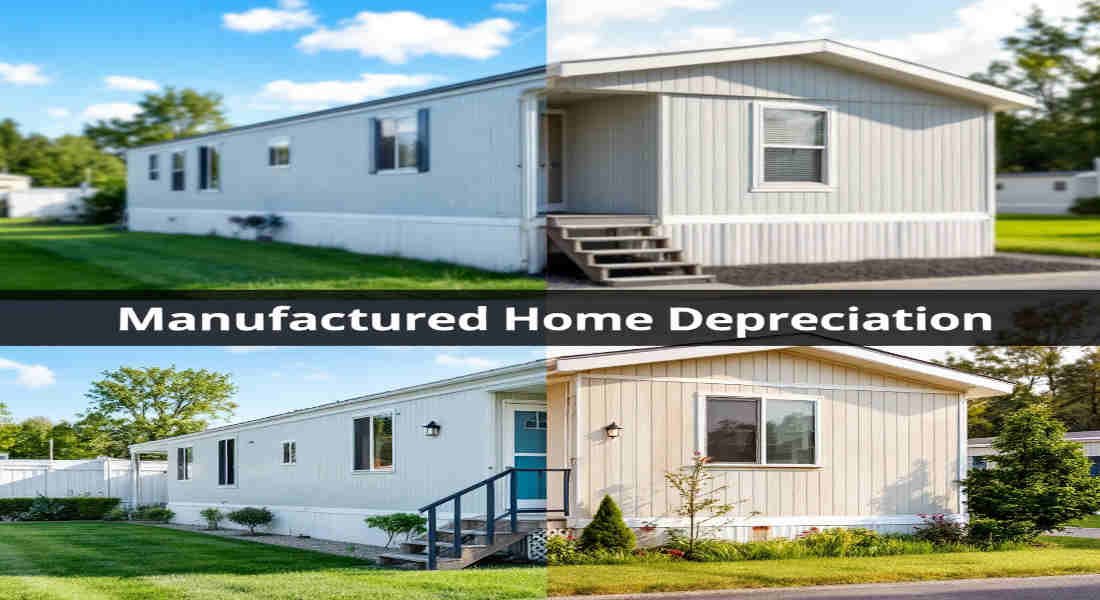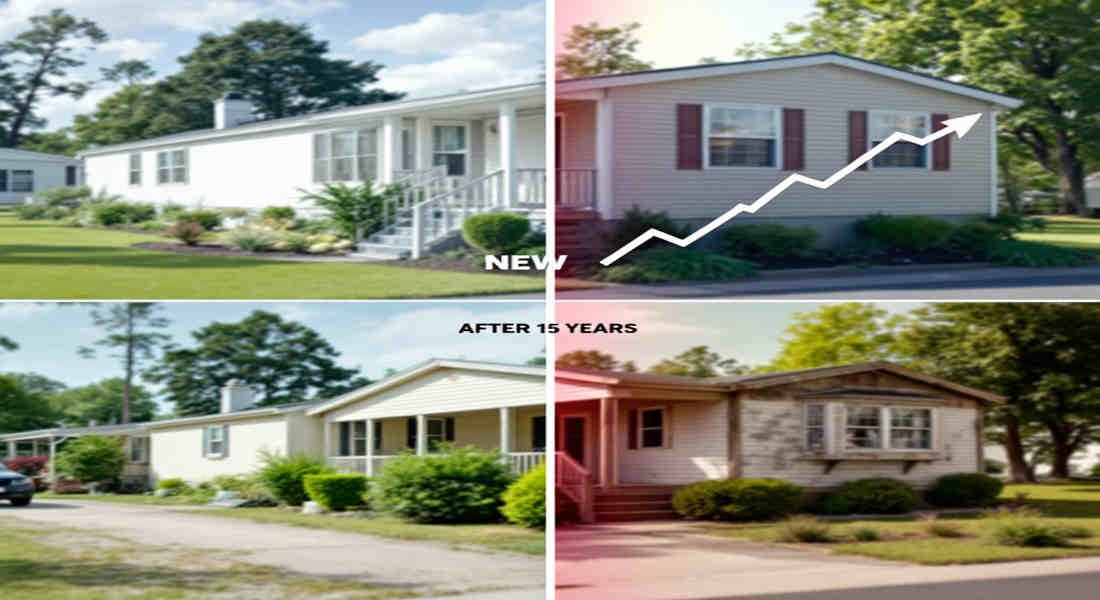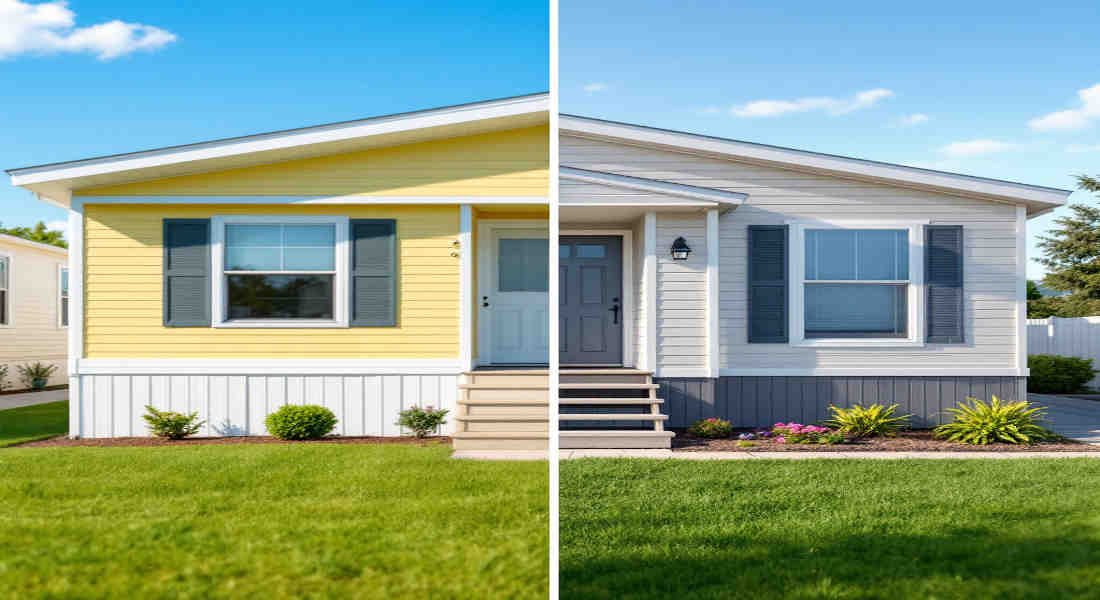Manufactured homes have become a cornerstone of affordable housing across the United States. With their affordability, versatility, and improved construction quality, these homes are now a popular choice for families, retirees, and first-time buyers alike. However, one critical question looms: “Does manufactured homes depreciate?”
Understanding the depreciation of manufactured homes is vital for buyers, sellers, and investors alike. Whether you’re considering purchasing a manufactured home or already own one.
What Are Manufactured Homes?
To understand depreciation, it’s essential to first grasp what manufactured homes are and how they differ from other housing types.
Definition and Key Features
Manufactured homes are factory-built homes constructed under the U.S. Department of Housing and Urban Development (HUD) code. Unlike site-built homes, which are built directly on a piece of land, manufactured homes are assembled in a factory and transported to their final location.
Key characteristics include:
- Factory-built construction ensures consistent quality.
- Placement on a chassis for transportation.
- Flexibility to be installed on owned land or leased lots.
Manufactured, Mobile, or Modular Homes?
Many people confuse manufactured homes with mobile homes or modular homes, but they are distinct:
- Mobile homes: Built before 1976, prior to the establishment of HUD construction standards.
- Modular homes: Built in sections in factories but assembled on-site, adhering to local building codes.
Improved Construction Standards
Modern manufactured homes are built to meet or exceed HUD regulations, which means they are durable, energy-efficient, and safe. These improvements have helped reduce the stigma once associated with these homes.
The Concept of Depreciation in Real Estate
Depreciation plays a significant role in understanding the financial dynamics of manufactured homes. Let’s break it down.
You may also read (understanding property tax for mobile homes).
What Is Depreciation?
Depreciation refers to the decline in the value of an asset over time due to factors like wear and tear, age, or market conditions. While it’s commonly associated with cars or machinery, depreciation also applies to real estate, but the dynamics differ.
Depreciation in Real Estate
In real estate, depreciation isn’t always a negative concept. While some homes lose value over time, others appreciate depending on factors like location, maintenance, and market demand.
Manufactured Homes vs. Site-Built Homes
Manufactured homes often face unique depreciation patterns:
- Site-built homes typically appreciate in value over time, especially when located in desirable neighborhoods.
- Manufactured homes may depreciate or appreciate, depending on factors like land ownership, condition, and location.
Do Manufactured Homes Depreciate? The Short Answer
So, do manufactured homes depreciate? The answer is: It depends.
Key Findings
Research indicates that manufactured homes can both appreciate and depreciate. Several factors influence this outcome, including:
- Land ownership: Homes on owned land are more likely to appreciate.
- Condition and maintenance: Well-maintained homes hold their value better.
- Market trends: Broader economic conditions play a significant role.
Real-World Data
According to studies:
- Manufactured homes in desirable locations or those situated on owned land have shown appreciation trends.
- Conversely, homes in less popular areas or on leased lots often depreciate over time.
Factors Influencing Depreciation and Appreciation
Several factors determine whether a manufactured home will lose or gain value over time. Let’s explore these in detail.
Location
The location of a manufactured home is one of the most critical factors in determining its value. Homes in desirable neighborhoods with proximity to amenities like schools, shopping centers, and healthcare facilities tend to appreciate.
Case Study: Manufactured homes in Caldwell, Idaho, have shown Appreciation due to high demand and limited housing supply.
Land Ownership vs. Leasing
Manufactured homes placed on owned land generally perform better in terms of value than those located in parks or on leased lots. Land ownership adds stability and increases the home’s appeal to buyers.
Age and Condition
As with any property, the age and condition of a manufactured home significantly affect its value. Regular maintenance, upgrades, and renovations can slow depreciation and even lead to Appreciation.
Market Conditions
The broader housing market and economic trends also influence manufactured home values. For example:
- A strong housing market can lead to increased demand, boosting values.
- Economic downturns may cause depreciation across all housing types.
Community and Resale Networks
Participating in organized resale networks can help homeowners retain value. These networks connect buyers and sellers, ensuring fair market pricing and combating negative stereotypes about manufactured homes.
Myths vs. Reality: Debunking Common Misconceptions
Myth: Manufactured Homes Always Depreciate Like Cars
Many people believe that manufactured homes depreciate similarly to vehicles. While this may have been true for older mobile homes, modern manufactured homes are built to last and can retain or increase their value under the right conditions.
Reality: Appreciation Is Possible
Data shows that manufactured homes in desirable areas or on owned land have appreciated in value. For example, homes in thriving markets like parts of Florida and Idaho have seen steady value increases.
Manufactured Homes vs. Site-Built Homes: A Comparative Analysis
Feature Manufactured Homes Site-Built Homes
Depreciation/Appreciation: Can appreciate or depreciate, depending on factors. Generally appreciated, market-dependent
Land Ownership Impact: Major factor; Appreciation is likely if land is owned. Typically includes land, aiding Appreciation.
Construction Standards: HUD-regulated, high-quality Local building codes, high-quality
Market Perception Historically negative, improving , generally positive
Maintenance Impact High; well-maintained homes retain value High; similar effect
Tips for Maximizing the Value of Your Manufactured Home
If you’re looking to preserve or enhance your home’s value, here are some actionable steps:
- Invest in Maintenance: Regularly inspect and repair your home to prevent wear and tear.
- Upgrade Features: Modernize appliances, flooring, and fixtures to improve appeal.
- Choose the Right Location: If possible, place your home in a desirable area.
- Consider Land Ownership: Owning the land your home is placed on can significantly boost its value.
- Engage with Resale Networks: Leverage networks to ensure fair market pricing during resale.
You may also read (importance of home improvement).

